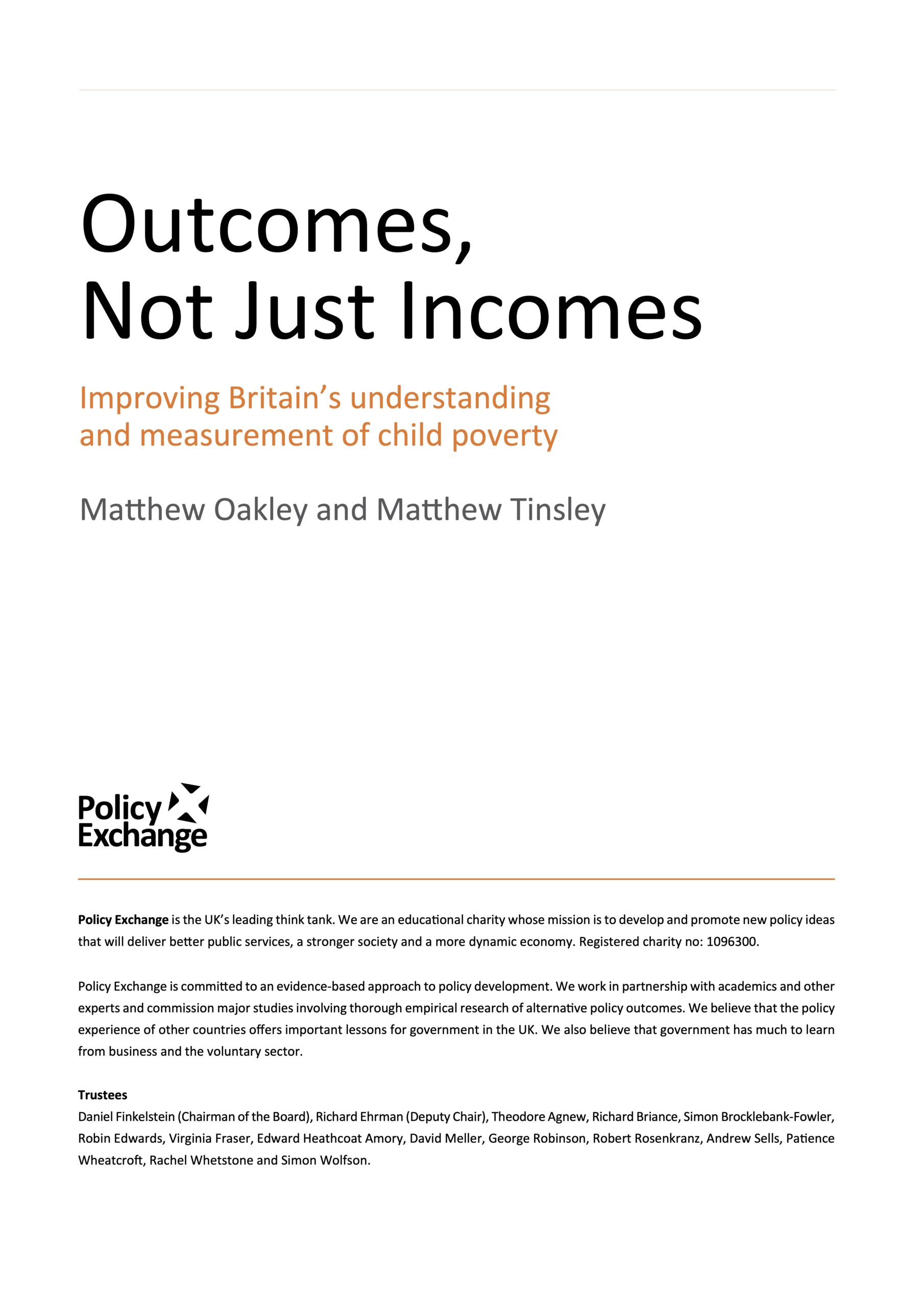
Outcomes, Not Just Incomes: Improving Britain’s understanding and measurement of child poverty
The Child Poverty target is underestimating the number of children living in poverty in the United Kingdom. It should be replaced with a new piece of legislation that covers both household income and social poverty factors such as whether a child has been in the care system or lives in poor quality housing.
Outcomes, Not Just Incomes says that nearly one in five children (2.3 million) across the UK are living materially deprived lives and are not included in the government’s headline measure of relative income poverty. This is despite £170 billion of expenditure between 2003 and 2010. Since 1998/9 the increase in net financial support for the poorest households with children amounts to £4,000 a year above inflation.
The report identifies a number of problems with the existing measure of child poverty:
- It does not look at factors that have severe impacts on the quality of children’s lives. While income is an important factor in determining whether a household can afford sufficient food, clothing and transport and to engage in society, it fails to account for wider indicators of child poverty such as quality of housing, standard of education, and whether a child has been in the care system.
- Politicians are forced to focus on short-term income redistribution rather than trying to help and support parents into employment or higher wage jobs. The 2010 Emergency Budget and Spending Review committed to spending £8 billion through Child Tax Credit in order to avoid changes in the headline measure of child poverty over a two year period.
- The uplifting of hand outs to hit the poverty target favours workless households over working households. Child Tax Credit – which is not contingent on working – rose by 63% between 2003/04 and 2012/13 compared to Working Tax Credit, which rose by 28%.
- It fails to adjust for the difference in cost of living across the UK. In London and the South West there are lower levels of child poverty than the national average yet when social poverty issues are taken into account the level of poverty rises significantly above places such as the West Midlands and Wales.
A recent Institute for Fiscal Studies (IFS) report also argued that measuring poverty solely on income incentivises government to focus on redistribution rather than on improving broader outcomes to improve children’s lives. In a 2012 report, the IFS noted that, “too much fixation on income-based measures may skew the policy response towards reforms that have immediate and predictable impacts on household incomes (such as tax and benefit changes)”.
The report recommends the introduction of a new Child Poverty Bill to replace the Child Poverty Act 2010. The new Bill would measure social poverty as well as household income.
Social poverty measures should include factors such as:
- Child is themselves a parent
- Quality of housing is poor or family is living in temporary accommodation
- Family are experiencing an unsustainable level of debt
- Child has been taken into care in their lifetime
- Child or parents have had criminal convictions
- Child has low educational attainment


